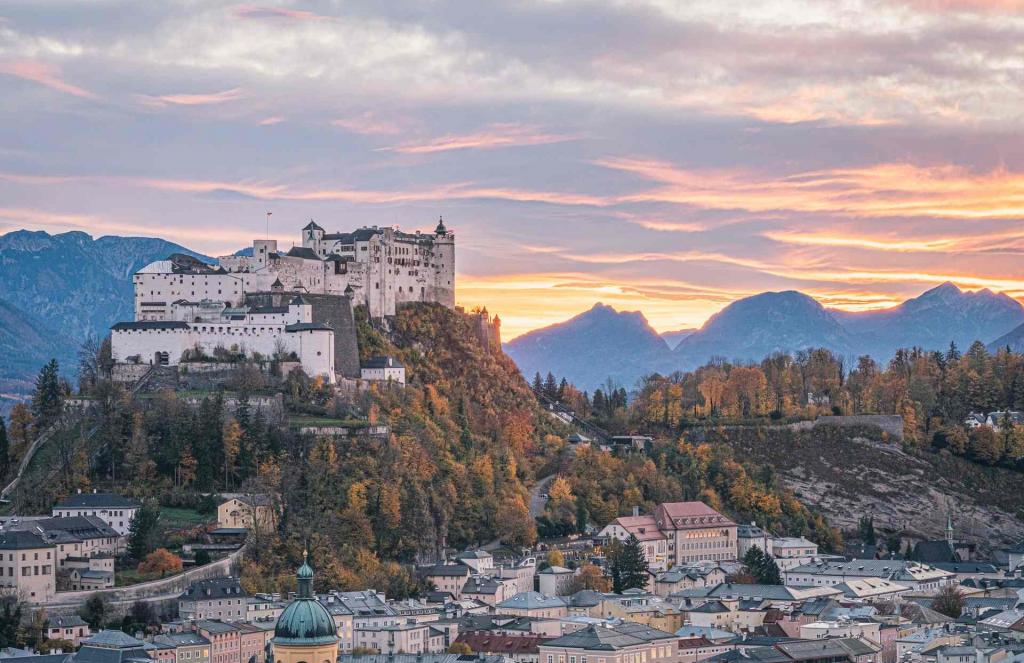Thessaloniki gets ready for its metro launch in November
The underground rapid transit lines have been under construction for almost two decades due to various project delays
 TheMayor.EU logo
TheMayor.EU logo 
When the fixed contracts expire, the city will redirect the usage towards powering municipal buildings
Authorities explain that the motive is to save taxpayers' money
Electricity prices across Austria are on the rise and the country is having a hard time filling up its gas storage capacities. Currently, they are at 45%, according to a July report by Statista, as the alpine country is 80% reliant on Russian Gazprom imports.
At the same time, however, authorities in the city of Salzburg have found a little loophole that would allow them to generate additional income for the local budget. They have started to sell renewable energy generated at the municipal photovoltaic plants to the country’s energy grid.
As ORF, the Austrian National Broadcaster, reports, Salzburg’s municipal renewable energy scheme is down to timing and price-capped contracts. Nearly a third of what the city produces is fed back into the general grid, as the tariffs are extremely lucrative. This, local leaders have said, would ultimately save the taxpayer money.
Still, the municipality of Salzburg generates rather small amounts of solar energy. With current projects in development, by the end of 2022, the city will have enough PV systems to power 200 homes. And while this would not satisfy municipal demand, at least the city can generate a small revenue stream.
Currently, around 60% of the photovoltaic systems power local senior citizens’ homes, the town hall of a local outdoor pool. The rest is being fed into the general grid. The city’s energy coordinator, Franz Huemer explained that the city had a long-term electricity supply contract.
This means that, while many citizens have started to feel the sting of rising energy prices, the municipality does not. Authorities can sell the energy they produce at twice the price they currently pay to their service providers.
The contemporary tariffs for renewable photovoltaic energy, fed back into the grid, is 30 cents per kilowatt hour. For the city, this means an income of 90,000 euros per year, according to the ORF.
When the city’s contracts expire, the excess municipal renewable energy will be directed toward buildings that lack their own photovoltaic systems.

The underground rapid transit lines have been under construction for almost two decades due to various project delays

Now you can get your wine in Talence by paying directly in Bitcoin

That’s because the state has to spend money on updating the railway infrastructure rather than subsidizing the cost of the popular pass

Rethinking renewable energy sources for the urban landscape

The examples, compiled by Beyond Fossil Fuels, can inform and inspire communities and entrepreneurs that still feel trepidation at the prospect of energy transition

Now you can get your wine in Talence by paying directly in Bitcoin

The 10th European Conference on Sustainable Cities and Towns (ESCT) sets the stage for stronger cooperation between the EU, national and local level to fast track Europe's transition to climate neutrality.

At least, that’s the promise made by the mayor of Paris, Anne Hidalgo

The underground rapid transit lines have been under construction for almost two decades due to various project delays

At least, that’s the promise made by the mayor of Paris, Anne Hidalgo

Hostal de Pinós is located in the geographical centre of the autonomous region

Despite its church-y name, the district has long been known as the hangout spot for the artsy crowds

Urban dwellers across the EU are having a say in making their surroundings friendlier to people and the environment.

Forests in the EU can help green the European construction industry and bolster a continent-wide push for architectural improvements.

Apply by 10 November and do your part for the transformation of European public spaces

An interview with the Mayor of a Polish city that seeks to reinvent itself

An interview with the newly elected ICLEI President and Mayor of Malmö

A conversation with the Mayor of Lisbon about the spirit and dimensions of innovation present in the Portuguese capital














